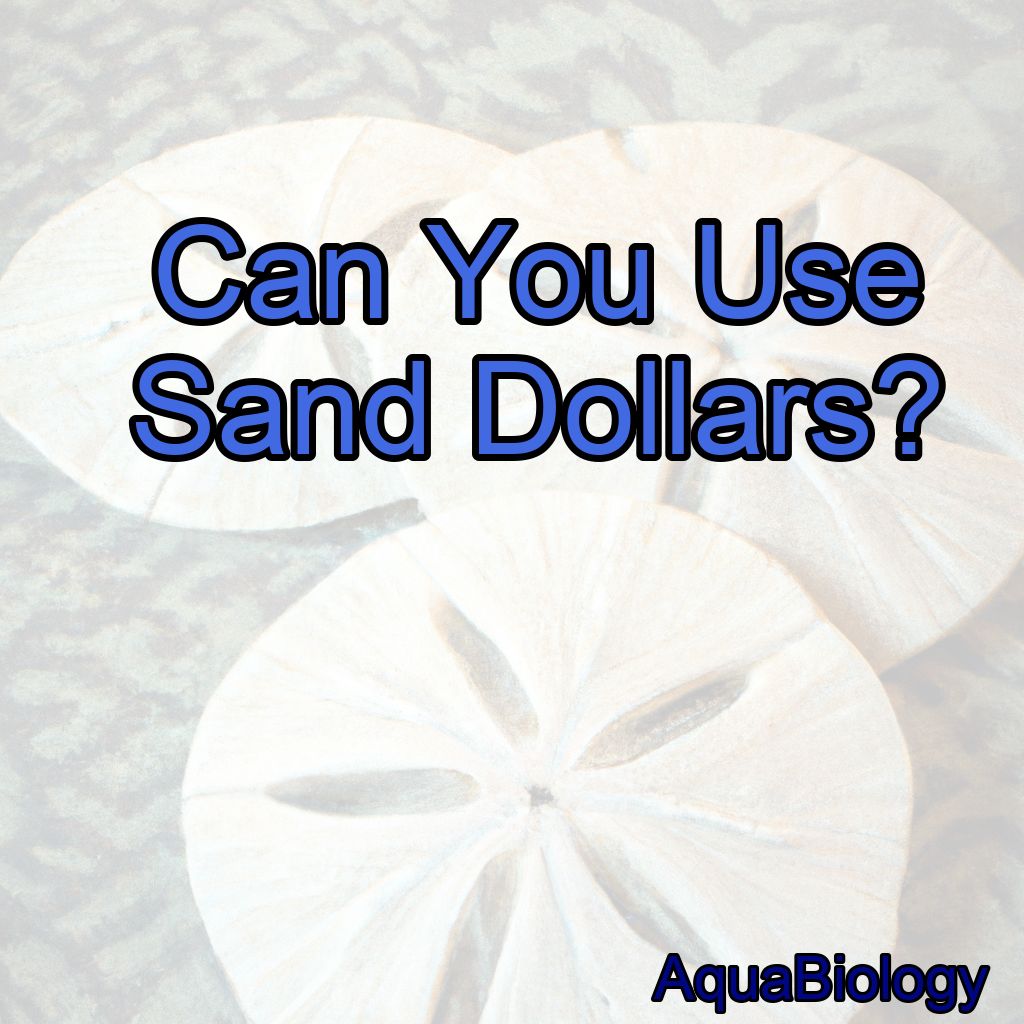As a marine biologist with a love for sand dollars, I often get asked the question: can you use sand dollars? The answer is not as simple as yes or no.
Yes, you can use sand dollars for decoration, crafts, or educational purposes.
In this blog post, I will explore the various uses of sand dollars and the legality of collecting them.
hat are Sand Dollars?
Sand dollars are a type of echinoderm, related to sea urchins and starfish. They are found on sandy ocean floors in shallow waters and are known for their flattened, circular shape and distinctive pattern of five petal-like structures on the top surface.
These structures are actually the sand dollar’s jaws, which it uses to burrow into the sand.
an You Collect Sand Dollars?
The legality of collecting sand dollars varies depending on where you are in the world.
In the United States, it is legal to collect dead sand dollars as long as they were not taken from a protected area.
However, it is illegal to collect live sand dollars as they are a vital part of the ocean ecosystem.
In other countries, such as Mexico, it is illegal to collect any sand dollars, dead or alive.
ses for Dead Sand Dollars
If you are lucky enough to find a dead sand dollar on the beach, there are a few ways you can use it. One popular use is as a decoration.
Sand dollars can be cleaned and bleached to create beautiful, natural-looking ornaments. They can also be used in arts and crafts projects, such as making a wreath or picture frame.
ses for Live Sand Dollars

While it is illegal to collect live sand dollars, they do serve an important purpose in the ocean ecosystem. Sand dollars help to keep the ocean floor clean by feeding on algae and other small organisms.
When sand dollars die, their bodies decompose and provide nutrients for other marine life.
he Dangers of Collecting Sand Dollars
Aside from the legal implications, there are other dangers associated with collecting sand dollars. If you are collecting live sand dollars, you could be disturbing the delicate balance of the ocean ecosystem.
Additionally, if you are collecting dead sand dollars, you could be inadvertently collecting other marine life that has made a home inside the sand dollar’s shell.
lternatives to Collecting Sand Dollars
If you are interested in learning more about sand dollars, there are many alternative ways to do so without collecting or disturbing them.
You can observe them in their natural habitat while snorkeling or scuba diving.
You can also visit a local aquarium or marine science center to learn more about their biology and behavior.
onclusion
So, can you use sand dollars? The answer is yes, but with caution.
It is legal to collect dead sand dollars in some areas, but it is important to make sure you are not taking them from a protected area. It is also illegal to collect live sand dollars, which play an important role in the ocean ecosystem.
If you are interested in learning more about sand dollars, there are many alternative ways to do so without harming the environment. Here are five facts to remember:
1. Sand dollars are echinoderms related to sea urchins and starfish.
2. It is legal to collect dead sand dollars in some areas, but not live ones.
3. Sand dollars can be used as decorations or in arts and crafts projects.
4. Live sand dollars help to keep the ocean floor clean by feeding on algae and other small organisms.
5. There are many alternative ways to learn about sand dollars without collecting them, such as visiting an aquarium or observing them in their natural habitat.
FAQs
What can I do with my sand dollars?
Sand dollars can be used as decorative items or souvenirs.
They can be displayed in a shadow box, used as a paperweight, or incorporated into a craft project.
However, it is important to note that collecting live sand dollars is illegal in some areas and may harm the ecosystem.
Is it OK to keep sand dollars? No, it is not OK to keep live sand dollars as they are living creatures and play an important role in the ecosystem.
It is also illegal to collect live sand dollars in some areas. If you find a sand dollar on the beach, make sure it is dead before taking it home.
What happens if you pick up a live sand dollar?
If you pick up a live sand dollar, it may be harmful to the animal as it may disrupt its feeding and breathing processes.
It is recommended to leave live sand dollars in their natural habitat and only collect dead ones.
Can you take an alive sand dollar?
No, it is illegal to take a live sand dollar as they are protected marine creatures.
Can you take live sand dollars from the beach?
No, it is illegal to take live sand dollars from the beach as they are protected under various laws and regulations.
It is important to leave them in their natural habitat to maintain the ecological balance of the beach ecosystem.
Is it OK to collect sand dollars? It is not recommended to collect living sand dollars as it can harm their population and ecosystem.
However, collecting dead sand dollars that have washed up on the beach is generally acceptable. It is important to check local regulations and guidelines before collecting any beach treasures.




